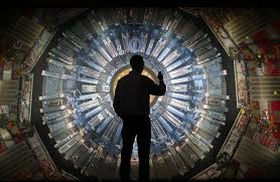Education and Science, Estonia, EU – Baltic States
International Internet Magazine. Baltic States news & analytics
Monday, 09.02.2026, 23:10
Estonia planning to join CERN
 Print version
Print version |
|---|
"For out entrepreneurs to have a better chance at taking part in CERN tenders, Estonia needs to become a member of the organization," Palo told on Wednesday.
According to Palo this would mean an expense of around 1.4 mln euros a year. There is no guarantee that a member state will get tenders as all member states can take part in all tenders, not like in the European Space Agency where all member states are guaranteed tenders in a certain volume.
Eesti has been involved in the work of CERN since 1996. Estonia's scientists and engineers have taken part in CERN's experiments and studies, but there are also entrepreneurs who have participated, Palo said.
The Ministry of Economic Affairs and Communications in February asked 41 enterprises if they would be interested in taking part in CERN tenders, of whom 38 said they would be interested in that, mainly IT and electronics companies.
"Therefore we have made a budget request to the Ministry of Finance to join CERN. The proposal will also be discussed by the research and development council next week," Palo said.
When commenting on an invitation to visit CERN, Palo said that it would be reasonable to make a visit in a year to properly prepare for it.
On Wednesday Palo will introduce the plan to join CERN in a briefing in the parliament.
Estonia's cooperation agreement with CERN was entered into in 1996 and it has been renewed in every five years. Estonia's funding of the cooperation agreement has grown from 96,000 euros in 2004 to 319,558 euros since 2011. With the increase in funding, the volume and efficiency of cooperation has also grown -- today Estonia has eight cooperation projects with CERN.
Founded in 1954, the CERN laboratory sits astride the Franco-Swiss border near Geneva. It was one of Europe's first joint ventures and now has 20 member states. Romania is a candidate to becoming a member state, and Israel and Serbia are associate members in the pre-stage to membership. Observer states and organizations currently involved in CERN programmes include the European Commission, India, Japan, the Russian Federation, Turkey, UNESCO and the U.S.








 «The Baltic Course» Is Sold and Stays in Business!
«The Baltic Course» Is Sold and Stays in Business!

